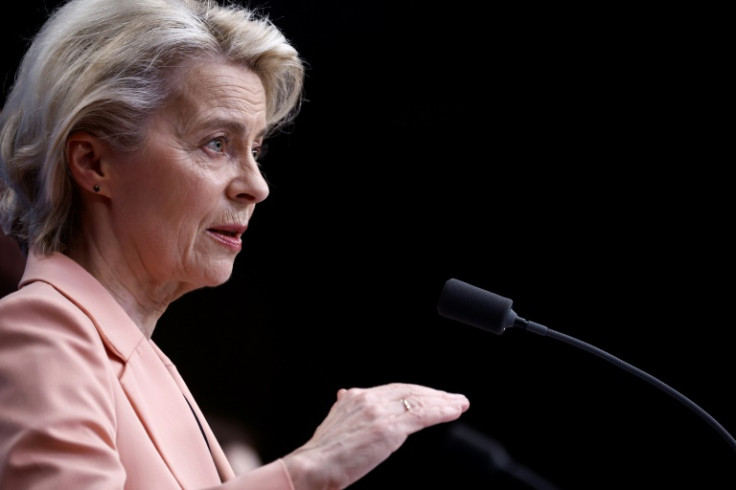Lawmakers Skewer EU Chief Over Contested Job Pick

European lawmakers will cast votes Thursday on a contested appointment to a plum Brussels job, with Ursula von der Leyen suspected of playing favourites to aid her own re-election as commission chief.
The doubts cast on von der Leyen's impartiality could not come at a more awkward moment, as she revs up her campaign for a second term following European elections in June.
The timing is anything but accidental, with von der Leyen's political rivals leading the charge in scrutinising the appointment.
The "Piepergate" case revolves around the choice of German EU lawmaker Markus Pieper for the highly paid position of small and medium enterprises envoy, despite claims that two female contenders were more qualified.
The allegation is that von der Leyen named Pieper, a fellow conservative, to lock in the support of the European People's Party (EPP) -- which formally backed her re-election bid a few weeks later.
"It was a way to subdue a European lawmaker who was one of Ursula von der Leyen's biggest detractors" within the Christian Democratic Union (CDU), the German pillar of the EPP, said EU lawmaker Daniel Freund, a German from the Green Party.
Freund filed an amendment with the European Parliament, to be voted on Thursday, that calls for Pieper's appointment to be scrapped.
Though non-binding, its passage would spell mid-campaign embarrassment for von der Leyen -- and critics from all sides may well seize the chance to send her a message.
Valerie Hayer of France, leader of the centrist Renew Europe group in the EU parliament, was the latest to add her voice to the chorus of criticism on Tuesday.
"Any nomination must take into account the balance of geography and gender," she wrote on X. "Not membership in a party."
Though the EPP is expected to remain the largest group in the next European Parliament, its support alone does not guarantee von der Leyen another five years.
The choice of commission chief and other top EU jobs will be determined through horse-trading between European capitals after the election, and be subject to confirmation by lawmakers.
Pieper signed a contract to become the SME Envoy on March 31 and is theoretically due to start his four-year term on April 16.
As a grade 15 position -- one of the highest in the EU hierarchy -- the job is understood to command a gross salary of around 18,400 euros ($20,000) a month.
The brewing backlash against his appointment spilled into the open last week when four EU commissioners wrote to von der Leyen raising "questions about the transparency and impartiality of the nomination process".
The signatories were the bloc's top diplomat Josep Borrell along with internal market commissioner Thierry Breton, economy commissioner Paolo Gentiloni and jobs commissioner Nicolas Schmit.
Breton, who like Hayer belongs to Renew Europe, caused a stir last month with a social media post questioning the depth of support for Von der Leyen's candidacy.
Borrell, Gentiloni and Schmit, meanwhile, all belong to the Socialists and Democrats grouping that is backing Schmit against von der Leyen to be the next commission chief.
At their urging, the EU's College of Commissioners discussed the allegations on Wednesday.
According to a source with knowledge of the talks, the EPP-affiliated commissioners took turns defending Pieper, in a session lasting about an hour.
"Thierry Breton and Josep Borrell spoke to the lack of collegiality, and the flagrant problems with information sharing on behalf of Ms von der Leyen," the source said.
The commission itself made no official comment, beyond its vice president, Maros Sefcovic, reasserting that the institution had followed the proper rules and procedures.
EU lawmakers had first raised concerns in a letter to the commission in February.
They wanted to know in particular about claims that two female candidates -- one Czech, the other Swedish -- had reached the final stage of the recruitment process with better results than Pieper.
Pressed on the matter, commission spokesman Eric Mamer reached for a sporting analogy to defend his boss -- likening the first stage of the selection to the pool stage in a football tournament.
"You have a team that finishes first, one that finishes second... and then the two highest teams move on to the next round," Mamer said.
© Copyright AFP 2025. All rights reserved.





















